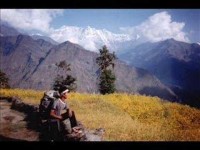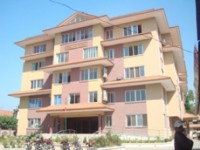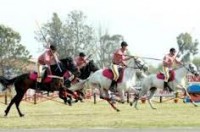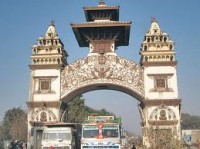The holy month of Ramadan
The ninth month of the Islamic calendar that lasts for 29 to 30 days, Ramadan is celebrated as the month of fasting by the followers of Islamic religion. During the entire month, Muslims refrain from eating and drinking at daylights hours and is intended to teach Muslims about patience, spirituality, humility and submissiveness to God. This whole month of fasting is also celebrated in many parts of Nepal inhabited by the Muslim community.
They offer more prayer than usual during this month and fast for the sake of Allah (god). The dates of Ramadan may vary compared to the solar calendar moving backwards by about eleven days each year depending upon the moon. This month being the one in which the first verses of the Quran were revealed to the Islamic prophet Muhammad, Ramadan is believed to be an auspicious month for revelations of God to humankind.
The beginning of Ramadan is estimated after the astronomical new moon day and the first day is known as Hilal (the crescent). However, there are some disagreements each year regarding the start of Ramadan created mostly due to the tradition of seeing moon with the naked eye and to end this confusion, some Muslims have leaned towards using astronomical calculations.
The Muslims fast from dawn to dusk during the entire month of Ramadan. They are also expected to follow the teachings of Islam and to avoid obscene and irreligious sights and sounds and the sexual intercourse between the spouses is only allowed after the fast has been ended. Every kind of temptation needs to be resisted and purity of thoughts and actions are to be followed. Every Muslim follower who has reached the age of puberty should compulsorily keep the fast as long as they are healthy, sane and have no disabilities or illnesses and only the elderly, the chronically ill and the mentally ill are excused from fasting along with the pregnant women (if they think it would be harmful to them or the unborn baby), women during menstruation and women nursing their newborns. Although the travelers are excused from keeping the fast, they are expected to make up for the days they missed while travelling.
The Muslims are also encouraged to read the entire Quran along with fasting and some perform the recitation of the entire Quran by means of special prayers called Tarawih that are held in mosques every night of the month. During this month, rather than focusing on the worldly affairs, they are expected to focus on self-reformation, spiritual cleansing and enlightenment, charity, good deeds and kindness.
Iftar is the fast-breaking meal that is consumed at sunset with the family. The meal that starts with the eating of a date (as prophet Muhammad used to do) will be followed by the Maghrib prayer (the fourth of the five daily prayers) before the main meal is served.
Charity is considered to be very important in the Islam community and according to the tradition, Ramadan is considered as the best time to give in charity as it is believed that the reward during this month is 700 times greater than any other time of the year. Often referred to as ‘the night of decree or measures’, Laylat al-Qadr is considered as the most holy night of the year as it is believed to be the night when Quran was first revealed to the prophet Muhammad. Eid ul–Fitr is the first day of the following month after Ramadan which marks its end. It usually falls after 29 to 30 days depending upon the lunar sighting. This day is celebrated with much joy and faith with food donations being made, putting on best clothes and communal prayers being held in the early morning followed by feasting and visiting of relatives and friends. Muslims are expected to perform the two Rakaah prayers as an act of worship and to thank god. Eid ul-Fitr, hence, is the greatest and most significant festival of Muslims that marks the end of the Ramadan, the holy month of fasting.







